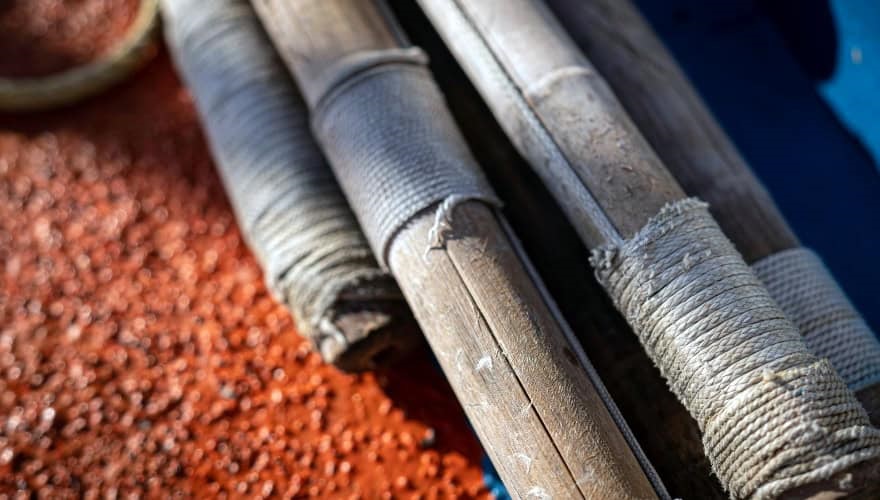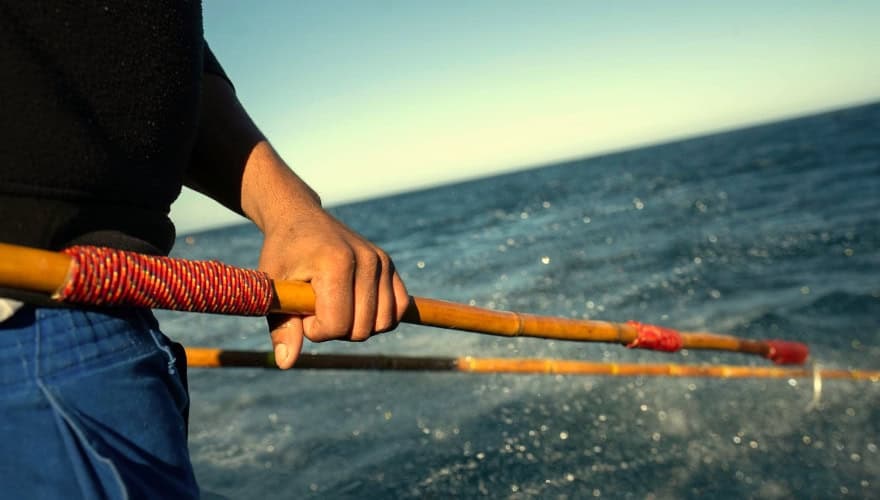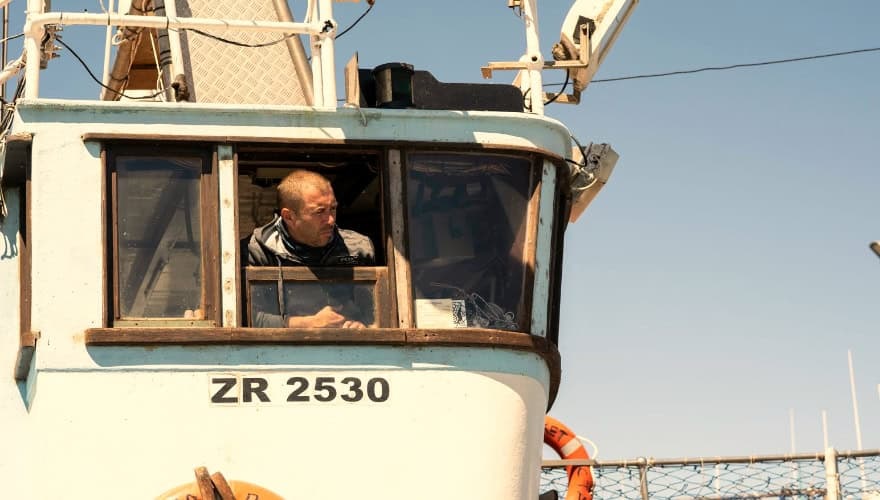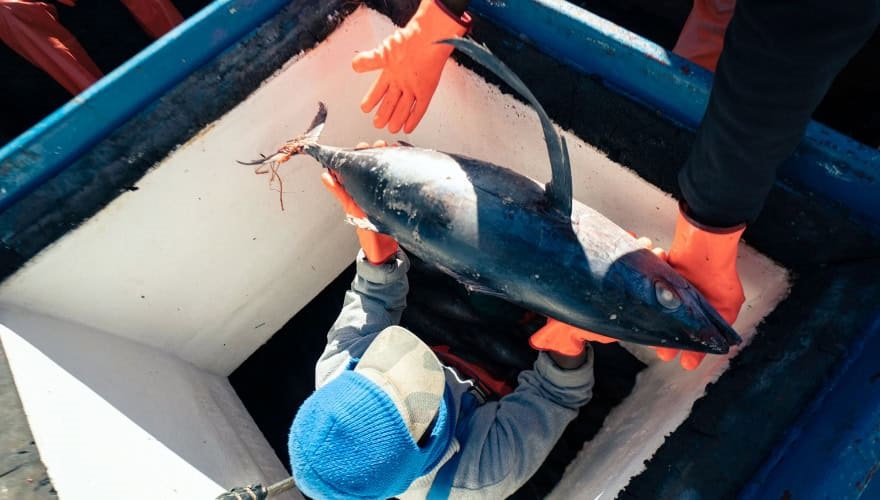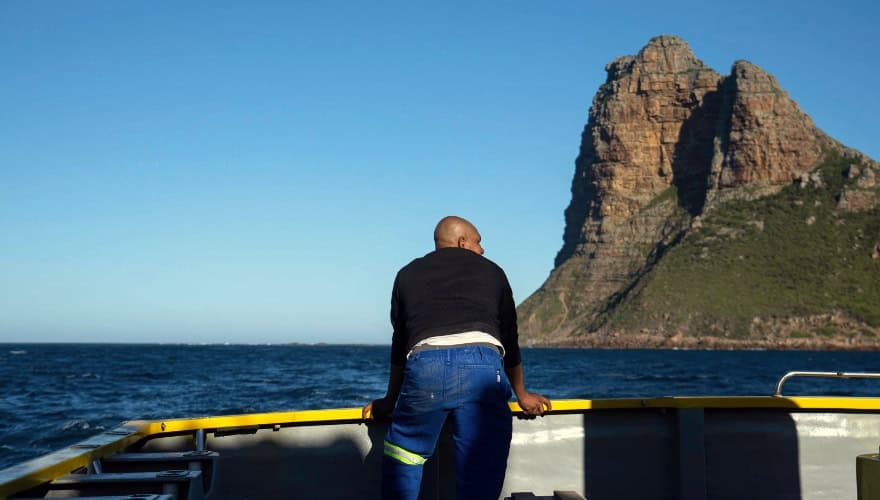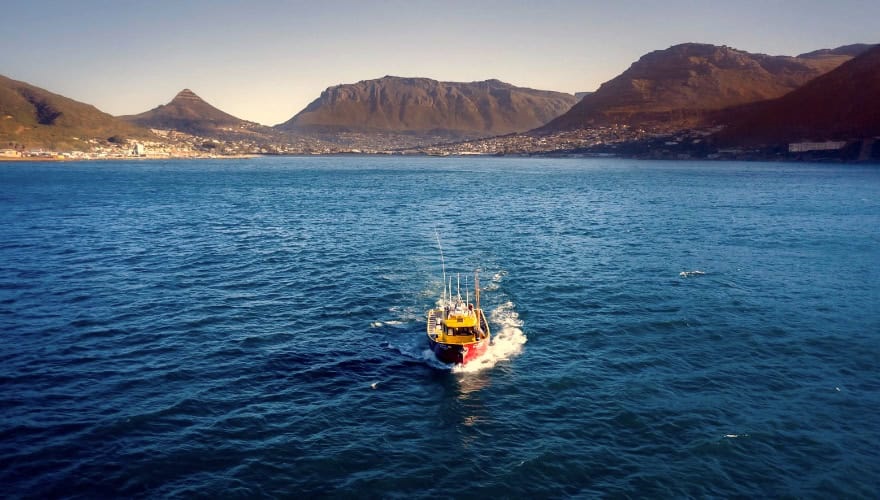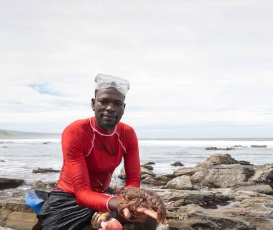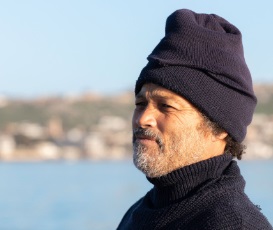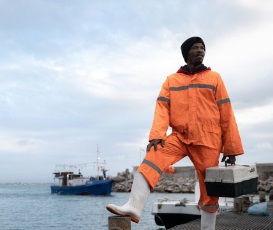Watch the Albacore pole and line film

Fishery profile

Tuna is one of the world’s most popular and economically valuable seafoods. There has been a global increase in demand for tuna, with an estimated 5.8 million tons now caught annually. In South Africa, tuna has been both an important part of fishing culture and key contributor to the economy since the mid 1960s.
One of the five tuna species fished in South African waters is albacore, a temperate tuna widely distributed throughout the world’s oceans. Around 2,500 people work in the fishery, which operates largely out of the harbours at Cape Town and Hout Bay. Vessels typically stay within 200km of their home port, but may travel up to 1,000km offshore in search of their catch.

“How we fish hasn’t changed much over generations. We still use the bamboo rods, and we still fish by hand.”
The albacore are targeted using pole and line, a centuries-old technique for catching tuna, thought to have originated in the Maldives. Once a school of tuna is sighted, water sprayers and baitfish are used to create the illusion of a large school of fish near the surface.
This encourages the tuna into a feeding frenzy, so much so that they will bite at any shiny, moving object in the water. The fishers capitalise on this, using barbless hooks attached to long wooden poles to heave the tuna one-at-a-time onto the deck.

“This is very targeted. You identify the tuna as you pull it up. You’re not catching anything else. There’s a respect for the ocean.”
Fish for Good Improvement Actions
- The fishery and government are working with regional fisheries management authorities to define harvest control rules for south Atlantic Albacore.
- The fishery is committed to developing a system to collect and record all encounters with, and catches of, non-target species.
- The fishery is determining the risk of its operations to endangered, threatened and protected species, and is working to develop a strategy to minimise any potential impacts.
- The fishery has shown its commitment to sustainability by entering the ‘In-transition to MSC’ program and received £50,000 from the organisation’s Ocean Stewardship Fund to allow the fishery to respond effectively to any future changes in stock levels.
“The Albacore tuna pole and line fishery have shown a real commitment to demonstrating the sustainability of their fishing operations. It has been a great experience guiding and supporting them on this journey. From Fish for Good, through the MSC’s ITM programme, to a point where they will be in a position to undertake full assessment against the MSC’s Fisheries Standard.”
MSC Fisheries Outreach Manager for Southern Africa
“For a small fishery like Albacore, that doesn't have the financial means to be able to compete with the bigger industrialised fleets, the MSC really has come to the party and said 'we will provide you with the necessary expertise and support and we'll walk together with you towards achieving MSC certification”
President of South African Tuna Association
More South Africa Fish For Good stories
Find out more
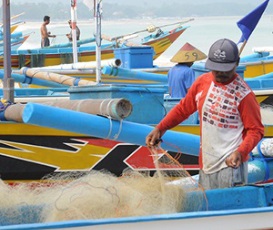
Fish for Good (project home)
Fish for Good is a four-year project aiming to guide fisheries in Indonesia, Mexico and South Africa on their journey towards sustainability.
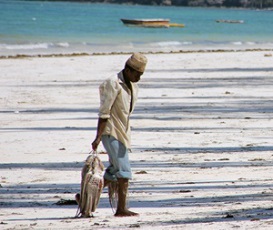
Southwest Indian Ocean Octopus Project (SWIOCeph)
An increased global interest in octopus creates potential for export market opportunities. This project will assist octopus fishing communities in the southwest Indian Ocean regions towards more sustainable practices.
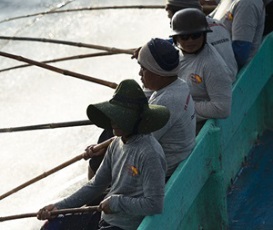
Fish for Good - Indonesia
Indonesia is the world's second largest fish producer. Some stocks are being overfished. Local food security, economy and marine biodiversity are at risk.
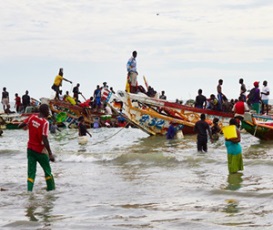
Fishery Improvement Projects (FIPs)
The MSC recognises the important contribution that FIPs can make to improving overall fisheries health and in promoting sustainable seafood. We work to provide technical support and capacity to credible FIPs.


